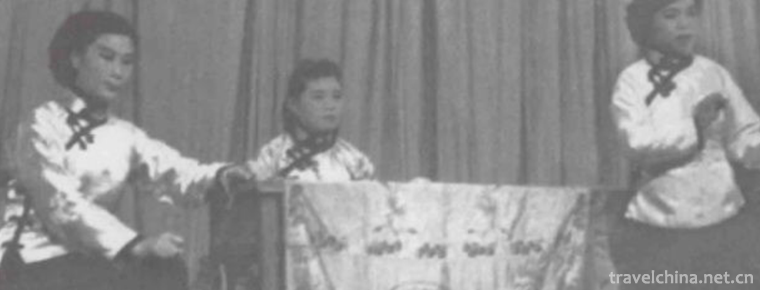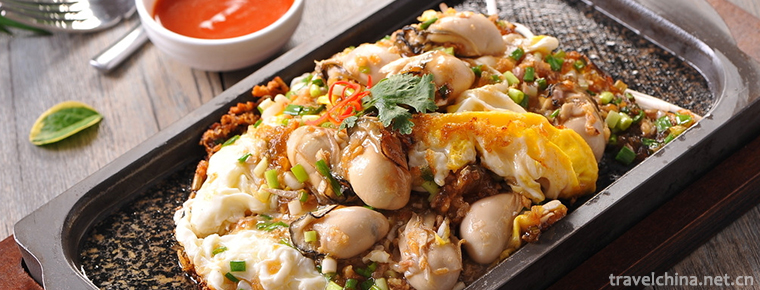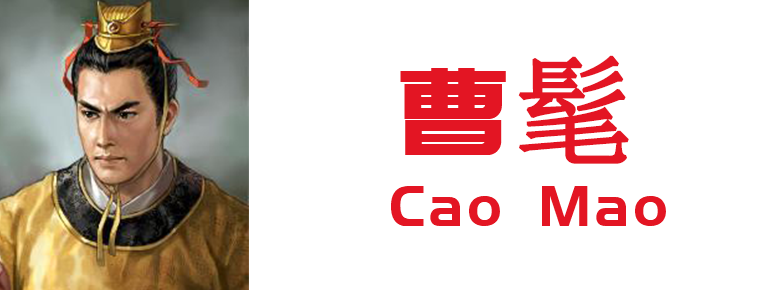2018-11-02

- By ChinaWiki.net
- Chinese Edition
- 2019-06-30
Wulin Diao
Wulin tune, also known as "Hangqu", is a popular form of folk songs in Hangzhou, Zhejiang Province and its surrounding areas.
Wulin Diao evolved from the folk propaganda of Baojuan and formed in the late Qing Dynasty. The performance form of Wulin tune is mainly sitting and singing, which combines narrative and singing. One person plays multiple roles, simulates the form and shapes the characters. It is popular and vivid and attractive. They often perform in teahouses, bookstores and entertainment stages.
In June 2008, the Wulin Diao declared by Hangzhou City, Zhejiang Province, was approved by the State Council to be included in the second batch of national intangible cultural heritage lists with the heritage number V-82.
Historical Evolution
During the Ming and Qing Dynasties, Hangzhou was a place where Buddhism and Taoism were prevalent, and folk propaganda activities were quite active. From the middle to the end of the Qing Dynasty, the religious nature of Baojuan gradually weakened, and a large number of popular treasure volumes with secular themes such as White Snake Biography, Liangshan Bobao, Pearl Tower, He Wenxiu, Mantis Marriage, Baihua Baojuan and Baibirdsong Baojuan appeared one after another. So far, the modern music variety "Hangzhou Xuanjuan" has roughly come into being, and it is the rudiment of Wulin Diao to perform in public festivals.
In the ten years of the Republic of China (1921), Hangzhou Xuanjuan artists moved the form of Xuanjuan into entertainment venues such as "Hangzhou Big World" to sing. Its singing repertoire is still dominated by secular treasure rolls, such as Baihuatai treasure roll, Liang Zhubao roll, Longtu treasure roll, Pearl Tower treasure roll and so on. It also absorbs folk songs such as "Seven Flowers", "Nine Links" and "Flower Line" into its treasure roll repertoire. In addition to the original wooden fish festival, Erhu strings and other accompaniment instruments were added to the accompaniment. Later, he performed the play "The Oil Seller Dominates the Flower Queen" in the form of opera, which was called "Make-up Xuanjuan" and later renamed "Wulin Class".
During this period, there were still many "Xuanjuan" classes performed by traditional rap. They developed at the same time with the Xuanjuan classes of entertainment venues. The tunes were quoted from each other. The early tunes used the tunes in the original Xuanjuan, mainly composed of seven-character sentences and cross sentences, and the structure of the upper and lower sentences, commonly known as "Dajingtong". It also transformed the "dressing-up" of foreign songs into "flat plate" and transformed the Kunqu opera brand "Manjiang Red" into "continental plate" and "soul-wandering tune". Its performance venues are tea houses and bookstores, such as Xiyutai Tea House, Yayuan Tea House, Chenghuangshan Tea House, etc. They often go to the families of citizens to sing "hall meetings". In the form of performance, sit-in singing is changed to walk singing, flexible and diverse.
In the eighteen years of the Republic of China (1929) and twenty-one years of the Republic of China (1932), Wulin Diao was banned twice by the authorities. After the Wulin tune and Wulin class artists more than 100 people jointly struggled with the authorities, it was able to resume singing. At that time, Hangzhou's Wulin tune developed rapidly. Wulin tune was performed in the form of opera. It was active in theatres and bookstores all over Hangzhou, and joined with Wulin artists who performed operas (Hangzhou Opera) to form a guild organization "Spring and Autumn Club".
In the 22nd year of the Republic of China (1933), the 24th year of the Republic of China (1935), the 25th year of the Republic of China (1936) and the 26th year of the Republic of China (1937), the Zhejiang Provincial People's Education Museum and the Hangzhou Municipal Government held the Hangzhou Tourist Training Course successively, in which 114 martial arts artists attended and graduated.
After liberation, in March 1951, the Hangzhou Opera Improvement Association was established, and the Wulin Tuning Association organized the "Spring and Autumn Society" to be abolished. Wulin tune artists participated in Hangzhou Opera Improvement Association. The opera performers of the Wulin troupe set up the "Spring and Autumn Hangzhou Opera Troupe". So far, Wulin tune has become an independent development of music.
In February 1955, Hangzhou Quyi Experimental Group was established. Wulin tune artists Wang Guifeng, Wang Guizhen, He Meizhen, Yu Caiying and Chen Aibao participated in the performance group to perform Wulin tune.
In 1956, after the census and registration of folk artists of Zhejiang Quyi by Zhejiang Cultural Bureau and others, Wulin tune was named "Hangqu".
In May 1958, the Hangzhou Quyi Troupe was founded, and the original Hangzhou Quyi Experimental Group was abolished. All Wulin tuners joined the Hangzhou Quyi Troupe as Hangzhou Quyi performers. In August 1958, the Ministry of Culture held the first National Quyi Performance in Beijing. Wulin opera performers Wang Guifeng and He Meizhen attended the performance. They performed the Hangzhou Opera "Bi Daughter-in-law" written by Gu Xidong, which was received by Party and state leaders Zhou Enlai and Dong Biwu. In the same month, Wang Guifeng participated in the First National Congress of Chinese Quyi Workers as a representative of Zhejiang Province. December 1958. Zhejiang Provincial Bureau of Culture organized Wulin tune actors Wang Guifeng and He Meizhen to go to Ant Island Fishing Village in Zhoushan, East China Sea to live in depth, and created modern Wulin tune repertoire "Girls in the Sea" and "Ant Island Seeing and Hearing" reflecting the life of fishermen on the island.
In May 1959, Zhejiang Music, Dance, Quyi and Puppet Show were held in Hangzhou. Wulin tune performers Wang Guifeng, Feng Zhaodi and He Meizhen performed Wulin tune "Superfluous Girls", "Ant Island Seeing and Hearing", "Girls in the Sea" and won awards.
In April 1969, the Hangzhou Quyi Troupe was abolished, and Wulin tune artists were forced to change their jobs and devolve factory labor. The art of Wulin tune (Hangqu) began to decline.
Artistic Characteristics
Performing Form
The traditional performance form of Wulin tune is that many people hold different musical instruments, dividing into different trades, such as Sheng Sheng, Dan, Jing, Du, Ugly, and so on. They sit and sing according to the script of the opera. When performing, three to five people are usually in one class, and three to five different musical instruments are used. Generally speaking, Shengdan and Dandan do not hold musical instruments. The class master plays the Huqin, playing the drum and the board with three strings at the end.
During the performance, only two eight immortal tables are used to form a bookstand. The three-person class sits on both sides of the bookstand. The middle one is the class master who plays erhu, while the drum board is born or dumpled; the other two are the class master who plays erhu on both sides, while the other two are ugly, ugly, drum-sticking and dumb-sticking.
Since the Republic of China, Wulin Dialect has been performing in various forms. Its main feature is "branch rap". It uses rappers to imitate the actions, expressions and tones of characters, and sometimes uses one person to imitate several characters. The performers are usually 4-5. The lyrics are mostly seven characters and cross sentences, which are easy to understand and rhyme in the next sentence. Speaking depends on the identity of different characters. The written language of Hangzhou dialect is used in Sheng, Dan, Jing and the end. The clown is lively in Hangzhou popular dialect. Performing venues are unlimited and easy to operate.
Singing props
Wulin tune artists call the teapots, cups, handkerchiefs and fans used on the desks "Four Treasures".
First treasure: Vitality pot, that is, the teapot used by singing artists. If the artist occasionally forgets the words during the performance, he can immediately take a drink from the teapot to gain time for memorizing the words, or make appropriate abridgement, so as not to expose the flaws.
Second treasure: Tim Yu Cup, or tea cup, has the same function as the teapot. You can also take a sip of tea to relax the atmosphere when you speak for the role.
The third treasure: no size, that is, a handkerchief used by rappers, can be simulated as the imperial decree, the imperial list, letters, brocade bags to read, can also be used as foot-wrapping cloth for comparison.
Fourth treasure: the universal fan, regardless of the eighteen kinds of weapons, general orders, banners and all other objects, can be replaced by fan simulation. Artists also have the following proverbs: Wenxuwu belly sedan chair fan crotch, green sleeve plum shoulder clown busy; blind Book buttock door half fan, breast farmer back monk light. "Wen" is a civil official, "Wu" is a military general, "Jiao" is a sedan chairman, "Qing" is a role played by Qingyi, "Mei" is a girl of Meixiang, "clown" is a role played by clown; "blind" is a blind person; "book" is a scholar of literati; "door" is a doorman; "breast" is a nurse; "peasant" monk"includes monks and nuns. The latter word refers to the part of the fan. Four proverbs vividly reflect the different identities of twelve kinds of people and the positions and methods of using fans.
Singing tune
The tune of Wulin tune belongs to plate tune. The main types of tune are "Continental Plate", "26 Plate", "Flat Plate" and "Wanghu Tune". The tune of people's song minor and sister art forms can also be introduced according to the need of expression.
Accompanied instruments
Erhu, Sanxian and Pipa are the main accompaniment instruments of Wulin tune. In the early stage, they performed in wooden fish festival, and in the later stage they changed to drum board.
Epidemic areas
Wulin Diao is popular in Hangzhou and its surrounding areas, southern Jiangsu and Eastern Jiangxi.
Inheritance and Protection
Current situation of circulation
With the change of the times, the transformation of society, the development of media means and the limitation of oral inheritance, Wulin tune, like other intangible cultural heritage, is on the verge of being lost.
1. Few artists can sing Wulin tune, and there are few successors. Wang Guizhen and Feng Zhaodi, Wulin tune artists who once sensed Hangzhou, died of illness at the end of the 20th century.
Second, the texts, repertoires and old photographs related to Wulin Dialect have been mostly lost.
Third, the original recording and recording materials of Wulin Dialect are still missing, and there is no special preservation institution.
protective measures
The Cultural Department of Hangzhou has set up a non-material cultural heritage protection organization to strengthen the protection of Wulin Diao. 1. Organize a special person to collect historical documents about Wulin Diao, as well as materials such as repertoire, script, musical singing, celebrities and so on, and compile Wulin Diao, one of the series of representative works of intangible cultural heritage in Zhejiang Ting Province. 2. Collect all the data of Wulin Dialect recordings and records that can be collected, and if they can be transcribed into discs, they can be converted into discs for preservation; if they cannot be converted into discs or sound effects are poor, they should be converted into music as far as possible for preservation.
The government and relevant departments of Hangzhou have taken rescue audio-visual photographs of the surviving Wulin tune artists Wang Guifeng, He Meizhen, Hu Meng and Wan Wenguan. They have recorded the works of Su San Ji Jie, San Tang Hui Jury, Yue Fei Zhuan and Fang Yuniang. Organize music cadres and quyi cadres to record and arrange the repertoire of Wulin tune (Hangzhou Opera), invite old artists to rehearse and perform in the storytelling arena.
Heritage figures
Wang Guifeng, female, born in 1929, is a member of the Chinese Quyi Artists Association. She has served as a director of Zhejiang Quyi Artists Association and Hangzhou Quyi Artists Association. She was a 14-year-old artist. In 1945, he joined the association of Wulin Diao and Wulin Class to organize "Hangzhou Spring and Autumn Society" to perform Wulin Diao. In 1955, he joined the Hangzhou Quyi Experimental Performance Team as an actor in Wulin Opera. From 1958 to 1968, he participated in Hangzhou Quyi Troupe and was the main actor of Hangzhou Quyi Troupe. In August 1958, he went to Beijing to attend the first Chinese Quyi performance sponsored by the Ministry of Culture. He performed the Hangzhou Opera "Bi Daughter-in-law", and attended the First National Congress of Chinese Quyi Workers in the same month. From 1968 to 1970, he taught at Hangzhou Art School, and was later delegated to factories. He returned to music in 1979. In 2008, the first batch of representative inheritors of Zhejiang intangible cultural heritage were selected. The representative traditional repertoires are Pearl Tower, Mother-in-law's Thorn Letter and so on, while the modern repertoires are Bi Daughter-in-law, Ant Island and so on.
He Meizhen, female, born in 1927, is a member of Zhejiang Quyi Artists Association and a former member of Hangzhou Quyi Artists Association. At the age of 7, she studied art with her father, famous Wulin artist He Songshun. In 1945, he joined the association of Wulin Diao and Wulin Class to organize "Hangzhou Spring and Autumn Society" to perform Wulin Diao. In 1955, he joined the experimental performance team of Hangzhou Quyi as an actor in Wulin tune. From 1958 to 1971, he was one of the main performers in Wulin tune of Hangzhou Quyi Troupe. In August 1958, the Hangzhou Opera "Bi Daughter-in-law" performed in cooperation with Wang Guifeng, a Wulin tuner, participated in the first national opera performance. During the Cultural Revolution, workers were delegated to factories. In 1979, he returned to the music world to sing Wulin tune. In 2008, the first batch of representative inheritors of Zhejiang intangible cultural heritage were selected. The representative traditional repertoires are Fang Yuniang's Upper Pagoda, Yutang Chun, etc. Modern repertoires include "Superfluous Girls" and "Girls in the Sea" and so on.
Selected as a non-survivor
In June 2008, the Wulin Diao declared by Hangzhou City, Zhejiang Province, was approved by the State Council to be included in the second batch of national intangible cultural heritage lists with the heritage number V-82.

Ask a Question
Your email address will not be published.



0 Questions